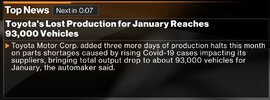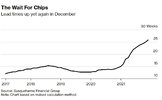- Joined
- 20 July 2021
- Posts
- 13,218
- Reactions
- 18,304
unless the market ( and possibly bond market ) have a 'taper tantrum ' ( and ruin the Democrat chances of a mid-term victory ) they ideally need a rate above 2% ( whether that is 4% , 6% or more ,time will tell )
but the government needs to inflate all that easy money away , because no way US tax-payers will tolerate the tax hikes necessary
AND the RINO Republicans probably only have war as an answer as well
but i guess time will tell world war or civil war ??
but the government needs to inflate all that easy money away , because no way US tax-payers will tolerate the tax hikes necessary
AND the RINO Republicans probably only have war as an answer as well
but i guess time will tell world war or civil war ??



